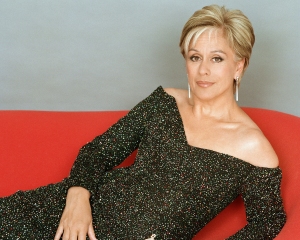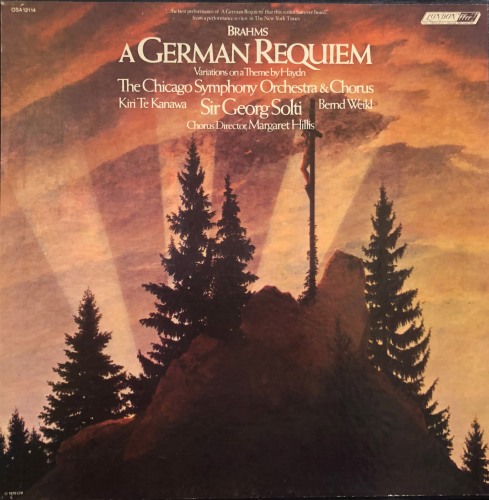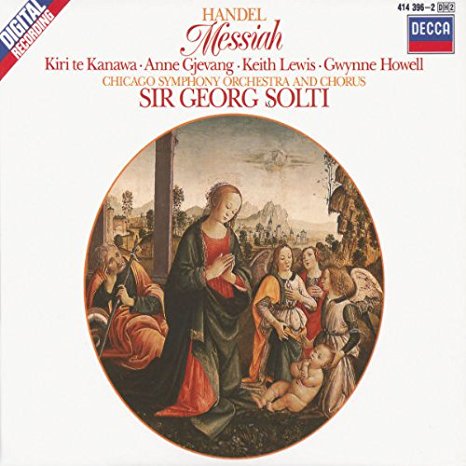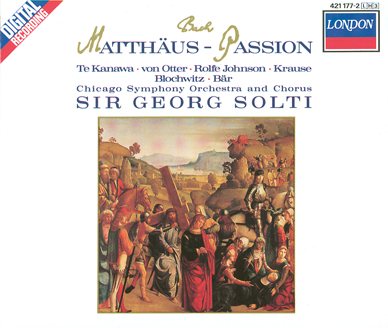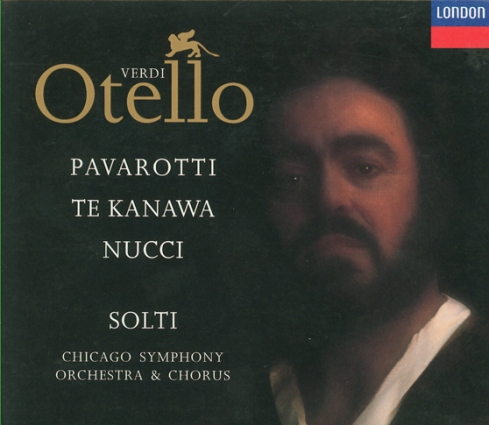You are currently browsing the tag archive for the ‘James Lock’ tag.
Beethoven’s Fourth Symphony—according to Theodore Thomas, the Chicago Symphony Orchestra‘s founder and first music director, in Talks About Beethoven’s Symphonies—is “a work as full of beauties, novel of their kind, as the Eroica, but expressing no worldly program; singing instead the songs of nature—the music of the soul. . . . In consequence, he has given us, in the Fourth Symphony, a song of beauty such as no one else has ever written, presenting absolute novelty of color and creating an atmosphere in music justly termed ‘romantic,’ a romanticism parallel to that of Schiller in literature.”
“Generations of music lovers have described—and sometimes dismissed—Beethoven’s even-numbered symphonies as lyrical and relaxed compared to their spunky, coltish, odd-numbered neighbors. The Fourth, in B-flat major, has suffered from that fate perhaps more than any,” writes CSOA scholar-in-residence and program annotator Phillip Huscher. “Schumann was perhaps the first musician to warn us not to overlook the Fourth’s own special qualities: ‘Do not illustrate his genius with the Ninth Symphony alone, no matter how great its audacity and scope, never uttered in any tongue. You can do as much with his First Symphony, or with the Greek-like slender one in B-flat major!’”
Founder and first music director Theodore Thomas first led the Chicago Orchestra in Beethoven’s Fourth Symphony on March 17 and 18, 1893, at the Auditorium Theatre.
Sir Georg Solti and the Chicago Symphony Orchestra and Chorus first recorded Beethoven’s nine symphonies between May 1972 and September 1974 for London Records. The recordings were ultimately released as a set (along with three overtures: Egmont, Coriolan, and Leonore no. 3); that set won the 1975 Grammy Award for Classical Album of the Year from the National Academy of Recording Arts and Sciences. The Fourth Symphony was recorded at Medinah Temple on May 13, 1974. Ray Minshull was the recording producer, and Kenneth Wilkinson and James Lock were the balance engineers.
Between September 1986 and January 1990, Solti and the Orchestra and Chorus recorded Beethoven’s complete symphonies a second time, again for London Records; and again, the recordings were ultimately released as a set (along with two overtures: Egmont and Leonore no. 3). The Fourth Symphony was recorded in Orchestra Hall on September 21 and 22, 1987. Michael Haas was the recording producer and James Lock was the balance engineer.
This article also appears here.
“What could come after [the Fifth Symphony]?” wrote Frederick Stock, the Chicago Symphony Orchestra‘s second music director, in Talks About Beethoven’s Symphonies. “The subtlety of Beethoven’s imagination found an answer in due time, and in his Sixth Symphony, the Pastoral, we find his thoughts expressed in a new form. Even though other composers before him and in his time had attempted to write program music, Beethoven was the first whose efforts in this direction proved to be a lasting achievement. . . . His was a poetic conception of nature’s grandeur and beauty, a faithful interpretation of her inward significance, cast in the most perfect of musical forms, the symphony.”

“Our familiar picture of Beethoven, cross and deaf, slumped in total absorption over his sketches, doesn’t easily allow for Beethoven the nature-lover,” writes writes CSOA scholar-in-residence and program annotator Phillip Huscher. “But he liked nothing more than a walk in the woods, where he could wander undisturbed, stopping from time to time to scribble a new idea on the folded sheets of music paper he always carried in his pocket. ‘No one,’ he wrote to Therese Malfati two years after the premiere of the Pastoral Symphony, ‘can love the country as much as I do. For surely woods, trees, and rocks produce the echo which man desires to hear.’ They’re all here in his Sixth Symphony.”
Founder and first music director Theodore Thomas first led the Chicago Orchestra in Beethoven’s Sixth Symphony on March 2 and 3, 1894, at the Auditorium Theatre.
Sixth music director Fritz Reiner led the Orchestra’s first recording of Beethoven’s Sixth Symphony on April 8 and 10, 1961, in Orchestra Hall. For RCA, Richard Mohr was the producer and Lewis Layton was the recording engineer.
Sir Georg Solti and the Chicago Symphony Orchestra and Chorus first recorded Beethoven’s nine symphonies between May 1972 and September 1974 for London Records. The recordings were ultimately released as a set (along with three overtures: Egmont, Coriolan, and Leonore no. 3); that set won the 1975 Grammy Award for Classical Album of the Year from the National Academy of Recording Arts and Sciences. The Sixth Symphony was recorded at the Sofiensaal in Vienna on September 10, 1974. Ray Minshull was the recording producer, and Kenneth Wilkinson, and James Lock were the balance engineers.
Between September 1986 and January 1990, Solti and the Orchestra and Chorus recorded the complete Beethoven symphonies a second time, again for London Records; and again, the recordings were ultimately released as a set (along with two overtures: Egmont and Leonore no. 3). The Sixth Symphony was recorded in Orchestra Hall on May 9, 10, 14, and 16, 1988. Michael Haas was the recording producer and Stanley Goodall was the balance engineer.
This article also appears here.
“We know with certainty that seldom was a work of this kind brought to completion under more adverse conditions than the Eighth Symphony,” wrote Frederick Stock, the Chicago Symphony Orchestra‘s second music director, in Talks About Beethoven’s Symphonies. The year 1812 was challenging for Beethoven, as he endured “domestic difficulties of the most embarrassing and annoying kind . . . added to this the agony of his ever-increasing deafness, and life’s burden must have been unbearable. And yet the general character of the F major symphony is added proof that adversities, no matter how severe, could not overwhelm him or daunt his spirt, since the temper and color of this work show no trace of suffering. . . . the Eighth Symphony [is] the work of a genius rising above his world, reaching beyond his own time, and that this work was only a stepping-stone for much greater things to come.”
The Eighth Symphony “was misunderstood from the start,” writes CSOA scholar-in-residence and program annotator Phillip Huscher. “The Eighth is a throwback to an easier time. The novelty of this symphony, however, is that it manages to do new and unusual things without ever waving the flag of controversy.”
Founder and first music director Theodore Thomas first led the Chicago Orchestra in Beethoven’s Eighth Symphony on March 25 and 26, 1892, at the Auditorium Theatre.
Sir Georg Solti and the Chicago Symphony Orchestra and Chorus first recorded Beethoven’s nine symphonies between May 1972 and September 1974 for London Records. The recordings were ultimately released as a set (along with three overtures: Egmont, Coriolan, and Leonore no. 3); that set won the 1975 Grammy Award for Classical Album of the Year from the National Academy of Recording Arts and Sciences. The Eighth Symphony was recorded at Medinah Temple on November 6 and 9, 1973. Ray Minshull was the recording producer, and Kenneth Wilkinson and James Lock were the balance engineers.
Between September 1986 and January 1990, Solti and the Orchestra and Chorus recorded the complete Beethoven symphonies a second time, again for London Records; and again, the recordings were ultimately released as a set (along with two overtures: Egmont and Leonore no. 3). The Eighth Symphony was recorded in Orchestra Hall on October 17 and 18, 1988. Michael Haas was the recording producer and Stanley Goodall was the balance engineer.
During Adolph “Bud” Herseth’s tenure as principal trumpet, the Chicago Symphony Orchestra commercially recorded Maurice Ravel’s orchestration of Modest Mussorgsky’s Pictures at an Exhibition on seven occasions between 1951 and 1990.
Following are the first tracks from each of those seven recordings, each featuring Herseth performing the work’s opening promenade fanfare.
Recorded in Orchestra Hall in Chicago in April 1951 for Mercury
Rafael Kubelík conductor
Wilma Cozart recording producer
David Hall recording supervisor
C. Robert Fine and George Piros recording engineers
Recorded in Orchestra Hall in Chicago in December 1957 for RCA
Fritz Reiner conductor
Richard Mohr producer
Lewis Layton recording engineer
Mark Donahue mastering engineer
Recorded in Medinah Temple in Chicago in July 1967 for RCA
Seiji Ozawa conductor
Peter Dellheim producer
Bernard Keville and Ernest Oelrich recording engineers
Recorded in Medinah Temple in Chicago in April 1976 for Deutsche Grammophon
Carlo Maria Giulini conductor
Günther Breest producer and recording supervisor
Klaus Scheibe engineer
Recorded in Medinah Temple in Chicago in May 1980 by London
Sir Georg Solti conductor
James Mallinson recording producer
James Lock and John Dunkerley balance engineers
Recorded in Orchestra Hall in Chicago in November 1989 for Chandos
Neeme Järvi conductor
Brian Couzens recording producer
Mitchell Heller location engineer
Paul Smith assistant engineer
Richard Lee editor
Recorded in Suntory Hall in Tokyo, Japan in April 1990 for Sony
Sir Georg Solti conductor
Humphrey Burton writer and director
Tomoyuki Tashiro and Renato Rezzonico executive producers
Shuji Fujii director
Juro Yokoyama recording director
Tetsuo Baba, Akira Fukada, and Andreas Neubronner recording engineers
Phil Piotrowsky lighting cameraman
Frank Baliello HDVS engineer
Armando Madaffari HDVS technician
Jean Rezzonico producer
John Dunkerley balance engineer
Martin Atkinson technical engineer
Terry Bennell editor
This article also appears here.
On October 12, 2020, we remember Luciano Pavarotti on what would have been his eighty-fifth birthday! The legendary Italian tenor appeared with the Chicago Symphony Orchestra on three memorable occasions, and a complete list of his appearances is below.
VERDI Requiem
April 24 and 26, 1975, Orchestra Hall
April 30, 1975, Carnegie Hall
Sir Georg Solti, conductor
Leontyne Price, soprano
Yvonne Minton, mezzo-soprano
Luciano Pavarotti, tenor
Gwynne Howell, bass
Chicago Symphony Chorus
Margaret Hillis, director
During the Chicago Symphony Orchestra’s centennial season in 1990-91, Sir Georg Solti—during his final residency as eighth music director—programmed Verdi’s Otello, with a stellar cast including Dame Kiri Te Kanawa, Leo Nucci, and Pavarotti, making his debut in the title role. Concert performances of the opera were given at Orchestra Hall and at Carnegie Hall.
VERDI Otello
April 8 and 12, 1991, Orchestra Hall
April 16 and 19, 1991, Carnegie Hall
Otello Luciano Pavarotti, tenor
Desdemona Kiri Te Kanawa, soprano
Iago Leo Nucci, baritone
Emilia Elzbieta Ardam, mezzo-soprano
Cassio Anthony Rolfe Johnson, tenor
Roderigo John Keyes, tenor
Montano Alan Opie, baritone
Lodovico Dimitri Kavrakos, bass
A Herald Richard Cohn, baritone
Chicago Symphony Chorus
Margaret Hillis, director
Terry Edwards, guest chorus master
Chicago Children’s Choir
Leslie Britton, director (Chicago)
Metropolitan Opera Children’s Chorus
Elena Doria, director (New York)
The work was recorded live during the Orchestra Hall and Carnegie Hall performances for London Records. Michael Haas was the producer, Christopher Pope was the assistant producer, James Lock and John Pellowe were the engineers, and Deborah Rogers was the tape editor.

Pavarotti and Kathleen Battle at the Ravinia Festival on June 21, 1991 (Jim Steere photo, courtesy of the Ravinia Festival)
Later that same year, Pavarotti was back in town to help open the Ravinia Festival‘s fifty-sixth season, appearing alongside Kathleen Battle in Donizetti’s L’elisir d’amore.
June 21, 1991, Ravinia Festival
DONIZETTI L’elisir d’amore
James Levine, conductor
Chicago Symphony Orchestra
Nemorino Luciano Pavarotti, tenor
Adina Kathleen Battle, soprano
Gianetta Dawn Upshaw, soprano
Belcore Mark Oswald, baritone
Doctor Dulcamara Paul Plishka, bass
Chicago Symphony Chorus
Margaret Hillis, chorus director
Numerous tributes have been posted online, including an excellent article on New York’s WQXR.org.
Wishing a very happy seventy-fifth birthday to the wonderful American mezzo-soprano, Frederica von Stade!
Von Stade has appeared with the Chicago Symphony Orchestra on several occasions, at the Ravinia Festival and in Carnegie Hall, as follows.
May 1 and 2, 1981, Carnegie Hall
BERLIOZ The Damnation of Faust
Kenneth Riegel, tenor (May 1)
Peyo Garazzi, tenor (May 2)
José van Dam, baritone
Malcolm King, bass
Chicago Symphony Chorus
Margaret Hillis, director
Glen Ellyn Children’s Chorus
Doreen Rao, director
Sir Georg Solti, conductor
Solti also led performances of Berlioz’s work at Orchestra Hall in Chicago on April 23 and 25, 1981, prior to the Carnegie Hall performances. Unfortunately, Frederica von Stade had to cancel due to illness. She was replaced by Chicago Symphony Chorus member Mary Beth Stephen on April 23 and Claudine Carlson on April 25.
Berlioz’s The Damnation of Faust was recorded by London in Medinah Temple on May 4, 5, 6, and 7, 1981. James Mallinson was the producer, and James Lock and Simon Eadon were sound engineers. The recording won the 1982 Grammy Award for Best Choral Performance (other than opera) from the National Academy of Recording Arts and Sciences.
July 9, 1988, Ravinia Festival
BERLIOZ Romeo and Juliet
Philip Creech, tenor
John Cheek, bass
Chicago Symphony Chorus
Margaret Hillis, director
James Levine, conductor
July 14, 1996, Ravinia Festival
MOZART Ch’io mi scordi di te? . . . Non temer, amato bene (with Claude Frank, piano)
MAHLER Songs from Rückert Lieder and Des Knaben Wunderhorn
Semyon Bychkov, conductor
August 14, 1999, Ravinia Festival
MOZART “Parto, parto, ma tu, ben mio” from La clemenza di Tito,
LEHÁR “Vilja” and “Lippen schweigen” (with John Aler, tenor) from The Merry Widow
Christoph Eschenbach, conductor
July 8, 2000, Ravinia Festival
Selections from:
COPLAND Old American Songs
KERN Show Boat
OFFENBACH The Grand Duchess of Gerolstein
MOZART Don Giovanni
RODGERS Oklahoma! and South Pacific
SONDHEIM A Little Night Music
with Samuel Ramey, bass
Miguel Harth-Bedoya, conductor
August 5 and 7, 2010, Ravinia Festival
MOZART Così fan tutte
Ana María Martínez, soprano
Ruxandra Donose, mezzo-soprano
Saimir Pirgu, tenor
Rodion Pogossov, baritone
Richard Stilwell, bass-baritone
Chicago Symphony Chorus
Duain Wolfe, director
James Conlon, conductor
Happy, happy birthday!

